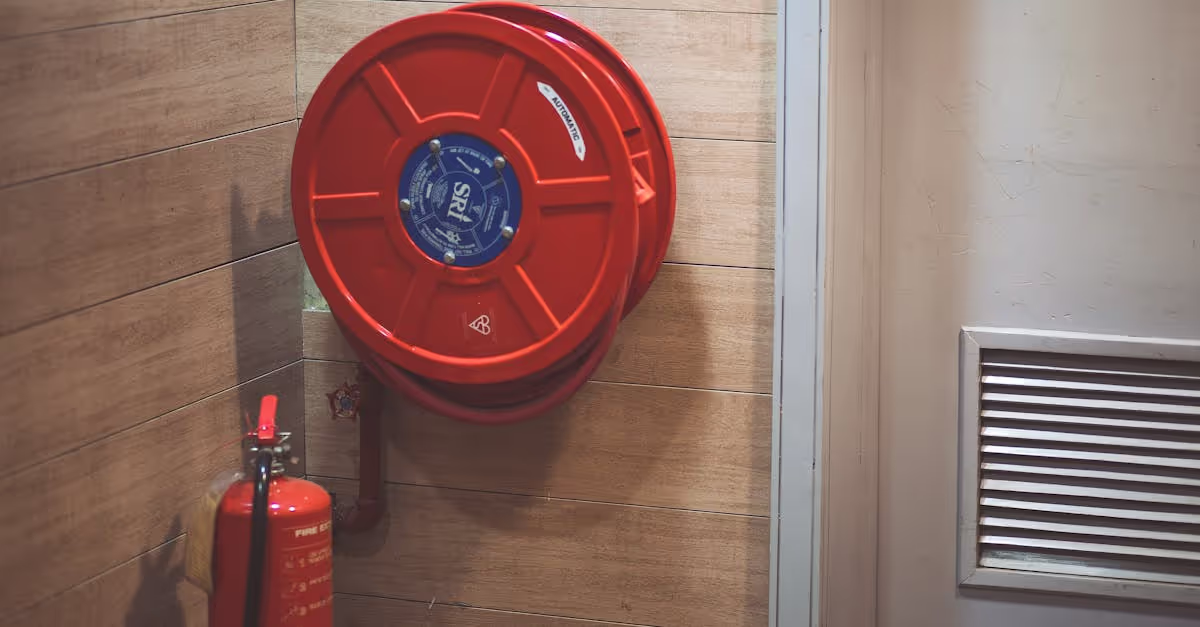Key Takeaways
- Emergency Replacement Services: Essential for quickly addressing failures in pool equipment like pumps and filters to maintain pool enjoyment and minimize downtime.
- Importance of Timeliness: Acting swiftly in replacing malfunctioning equipment helps avoid costly repairs and prevents further complications, ensuring a hassle-free swimming experience.
- Common Equipment Needs: Key pool components needing emergency replacements include pumps, filters, heaters, salt cells, and automation systems, all crucial for a well-functioning pool.
- Researching Reliable Providers: Look for local, well-reviewed pool service providers with proper licensing to guarantee high-quality emergency assistance when needed.
- Cost Awareness: Understand the price ranges for replacing pool equipment and factor these into your budget to prepare for unexpected expenses.
- Insurance Considerations: Check homeowners insurance policies for coverage on pool equipment failures, which can help mitigate costs associated with repairs or replacements.
When the sun's shining and the temperature rises, our pools become the ultimate oasis. But what happens when essential equipment like pumps and filters suddenly fails? According to recent studies, nearly 30% of pool owners experience equipment issues at least once a season. That’s where emergency replacement services come into play, ensuring we can get back to enjoying our backyard paradise without missing a beat.
In this guide, we'll explore the ins and outs of emergency replacement services for vital pool equipment. From understanding the signs of malfunction to knowing when to call for professional help, we've got you covered. Let’s dive into the essentials that keep our pools running smoothly and our summers worry-free.
Understanding Emergency Replacement Services
Emergency replacement services play a crucial role in maintaining our pools, especially when equipment like pumps and filters fail unexpectedly. Addressing these issues swiftly helps maintain the enjoyment of our outdoor spaces.
Importance of Timely Replacement
Timely replacement of pool equipment is essential to avoid extended downtime and potential damage. When we encounter a malfunction, acting quickly prevents further complications and costly repairs. Nearly 30% of pool owners face equipment failures during the season, often leading to frustration. With automated field service solutions, our service providers can respond rapidly, minimizing wait times. These tools can schedule technicians efficiently and optimize routes for quicker service. Engaging reliable emergency replacement services keeps our pools in peak condition, allowing us to enjoy our leisure time without hassle.
Common Pool Equipment Needing Replacement
Several key components may require emergency replacements:
- Pumps: Essential for maintaining water circulation. Failure often leads to stagnant water, which can result in algae growth.
- Filters: Crucial for clean water. A malfunctioning filter can compromise water quality quickly.
- Heaters: Important for comfortable swimming year-round. Broken heaters can turn a refreshing dip into an icy shock.
- Salt Cells: Necessary for saltwater pools to operate efficiently. Failure impacts water chemistry and clarity.
- Automation Systems: Streamline pool functions; failure can disrupt routine maintenance.
Types of Essential Pool Equipment
Understanding essential pool equipment helps us maintain a vibrant swimming environment. This section focuses on three critical components: pumps, filters, and heaters.
Pumps
Pumps serve as the heart of our pool systems. They circulate water, keeping it clean and clear. Common issues include loud noises, vibrations, and overheating. These problems often arise from worn bearings or faulty capacitors.
Replacement begins by turning off the power at the circuit breaker. We check for leaks in seals or fittings and replace the mechanical seal if water flow decreases. Proper lubrication and alignment of seals are crucial. If repairs are unfeasible, replacing the pump ensures the right fit and capacity for our pool's volume. Using automated field service solutions aids technicians in efficiently troubleshooting and scheduling pumps according to our needs.
Filters
Filters play a critical role in maintaining water clarity and quality. They remove debris, dirt, and contaminants. A malfunctioning filter may lead to cloudy water or inadequate sanitation.
When replacing a filter, we start by shutting off the pool system. Next, we remove the old filter and clean the housing. It's vital to select a replacement that matches our existing system's specifications. Upgrading to a more efficient model can enhance filtration and may even reduce energy costs. Service business software helps to track maintenance schedules and filter replacements effectively.
Heaters
Heaters provide comfortable swimming temperatures, extending our pool season. Common heater issues include failure to start, irregular heating, or strange noises.
To replace a heater, we first disconnect the power source and plumbing connections. We then remove the old unit and install the new one, ensuring all connections fit correctly. Regular maintenance can prolong heater life, but when replacement becomes necessary, technician management software allows us to schedule service promptly. This technology makes coordinating repairs more straightforward, ensuring our pool remains a favorite spot for relaxation and fun.
Finding Reliable Replacement Services
When our pool equipment malfunctions, quick and reliable replacement services make all the difference. Taking proactive steps in locating the right service providers helps us avoid disruptions during those hot summer days.
Researching Local Providers
Identifying local pool equipment repair and replacement services starts with a simple search. In areas like Southwest Florida, we find established companies like Water Medic of Cape Coral, Gulfstream Pool Care, and Pool Doctor Service & Repair. Each of these services comes with a professional reputation built from customer satisfaction. Checking if these providers hold proper licensing and insurance gives us peace of mind. For example, a State Certified Pool Contractor status often indicates that the provider adheres to industry standards.
Checking Reviews and Ratings
Reading customer reviews and ratings provides insight into the quality of service. Platforms like Google or Yelp can help us gauge experiences other pool owners have had. Look for patterns in comments. Are technicians punctual? Do they communicate clearly? Consistent positive feedback generally signals reliability. Alternatively, if we spot multiple negative reviews regarding delayed repairs or poor customer service, we may want to look elsewhere. Trust is key in these situations, so recommendations from friends and family also carry weight. Having a network to lean on can make the process smoother.
Cost Considerations
Understanding costs associated with pool equipment replacement helps us make informed decisions, especially during emergencies. Knowing what we might face can guide us in budgeting and planning for those unexpected repairs.
Average Price Ranges
Pool equipment replacement costs vary widely. For instance:
Equipment TypePrice RangePool Filter$200 - $1,500Pool Pump$300 - $1,200Pool Heater$500 - $3,000
Budgeting for these expenses up front helps us avoid surprises later. When estimating costs, consider both the type of equipment and labor expenses. Investing in higher-quality filters or pumps might save us money long-term due to increased efficiency.
Insurance Options
Insurance can be a valuable ally in managing pool equipment costs. Homeowners should check their policies for coverage related to equipment failure. Some plans include:
- Replacement coverage for specific equipment types.
- Additional living expenses if a malfunction disrupts pool enjoyment.
Contacting our insurance agent can clarify what's covered. Investing in service invoices can facilitate efficient claims processing. Though no one wants equipment failures, having coverage in place can minimize our out-of-pocket expenses. Additionally, utilizing field service management software can streamline communication with our insurance provider, making claims less of a hassle.
Do we feel prepared, or is it time to reevaluate our options? A little awareness today can keep us swimming comfortably tomorrow.
Conclusion
Staying proactive about our pool equipment can make all the difference in enjoying our outdoor spaces. By recognizing the signs of potential failures and knowing when to call for emergency replacements, we can avoid unnecessary disruptions.
Choosing reliable service providers ensures we receive prompt assistance when we need it most. As we navigate the costs associated with replacements, being informed helps us make better decisions that benefit our long-term enjoyment.
With the right preparation and knowledge, we can keep our pools in peak condition, ready for relaxation and fun all summer long.
Frequently Asked Questions
What are emergency replacement services for pool equipment?
Emergency replacement services for pool equipment provide quick and efficient solutions when essential components, like pumps or filters, fail unexpectedly. These services help minimize downtime and ensure pool owners can enjoy their pools without significant interruptions.
Why is timely replacement of pool equipment important?
Timely replacement is crucial to avoid extended downtime and potential damage to your pool. Quick action can prevent further complications, costly repairs, and ensures your pool remains functional and enjoyable throughout the swimming season.
What common pool equipment might require emergency replacement?
Common pool equipment that may need emergency replacement includes pumps, filters, heaters, salt cells, and automation systems. Each of these components plays a vital role in maintaining pool functionality and water quality.
How can I recognize signs of malfunction in my pool equipment?
Signs of malfunction in pool equipment may include unusual noises, poor water quality, or inconsistent temperatures. Monitoring these symptoms can help you identify issues early, allowing for timely replacement or repair.
How do I find reliable replacement services for my pool equipment?
To find reliable replacement services, research local providers, check for proper licensing and insurance, and read customer reviews on platforms like Google or Yelp. Recommendations from friends and family can also guide your choice.
What are the average costs for replacing pool equipment?
Average replacement costs vary by equipment type: filters can range from $200 to $1,500, pumps from $300 to $1,200, and heaters from $500 to $3,000. Always consider labor expenses and potential long-term savings when budgeting.
How can I prepare for potential pool equipment failures?
Preparation involves regular maintenance checks, understanding your equipment, and having a plan for emergencies. Familiarize yourself with local service providers and review your insurance coverage related to equipment failure.






